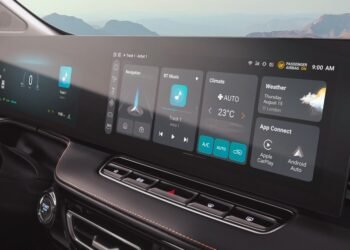- Sustainability research performed by Schneider Electric shows the global economy will gradually decarbonize as it embraces digital technology
- Electricity 4.0 reduces 68% of energy that’s currently lost or wastedthrough inefficiencies and contributes to sustainability
- Schneider Electric managed to provide over 1.1 million people access to green electricity in Q2 2022
- Monitoring electricity usage at homes can achieve 7-10% energy savings
Climate change is the biggest challenge of our time and the single greatest threat to a sustainable future. Increased human-induced emissions of heat-trapping greenhouse gases are altering the Earth’s climate, which already has a significant impact on the environment that none of us can neglect.
The impact of climate change
Extreme weather events are already becoming more intense globally, threatening lives and livelihoods. Numerous studies indicate that these extreme events are likely to be correlated with climate change. According to a 2022 study, temperatures in the Middle East and eastern Mediterranean are rising almost twice as fast as in the rest of the world. The same study noted that the climate in countries including Egypt, Greece, and Saudi Arabia is predicted to warm by around 5 degrees Celsius by the end of the century.
Regions in North Africa have also been feeling the strong effects of climate change, with countries such as Morocco, Algeria, Tunisia, and Egypt experiencing unprecedented multi-year droughts. With such effects being felt worldwide, experts have concluded that Greenhouse gas emissions must peak by 2025 and reduce by 43% by 2030, in order to limit global warming. We need to move swiftly to a low-carbon society, but such a transition will require an enormous effort by individuals and investors, companies and governments, as well as society at large. Responding effectively means fundamentally transforming how we live and do business in order to drive change across the entire ecosystem.
Integrating digitization and electrification to accelerate sustainability
According to sustainability research performed by Schneider Electric, the global economy will gradually decarbonize as it embraces digital technology. With no changes to existing policies, the introduction of new technologies and changing consumption patterns could cause global CO2 emission levels to decrease by 30% by 2050. Digital innovation has enormous potential to achieve decarbonization, and, disrupting how we manage energy design in buildings, industries, and mobility will get us closer to a net-zero carbon world.
“Schneider Electric believes that integrating a more electric and digital world is key to addressing the global climate crisis and enabling a sustainable and resilient future,” shared Denis Marant, Senior Vice President, Home, and Distribution Division – International Hub, Schneider Electric, “In the last 200 years, four technology-driven revolutions have transformed the industrial ecosystem. The traditional, centuries-old electricity system makes way for an entirely new paradigm. This transformation’s scale, scope, and complexity are unlike anything in history. It is nothing less than the convergence of digital and electric universes. This is the New Electric World. This is Electricity 4.0.”
As the world becomes more electric, through continued digitalization and the transition to electric transportation and heating methods, energy consumption is only going to rise. Electricity 4.0 will digitalize the energy ecosystem from end to end, enabling us to scale renewables and reduce the 68% of energy that’s currently lost or wasted through inefficiencies.
On his part, Eng. Saif Eldemerdash, Vice President, Home and Distribution, at Schneider Electric Northeast Africa and Levant said “Homes contribute to global carbon emissions by 20%. By utilizing Schneider Electric’s solutions and services, we can achieve energy efficiency and maximize the use of electricity as a source of energy. As we witness a huge expansion of smart homes and buildings and electric vehicles, the growing usage of electricity will result in decreased carbon emissions and enhanced sustainability. As part of our efforts to promote the concept of smart homes and make it accessible to everyone, we aspire to achieve 1,000 smart homes in Egypt in 2023. We are currently working on introducing The “Homes of The Future” concept which will showcase our portfolio of solutions dedicated to smart homes as we pursue greater growth in this field.”
Embedding ESG into business practices
The future of sustainability rests upon Electricity 4.0’s success and the adoption of proper investments in ESG. The ESG framework requires corporations and businesses to take responsibility and take measures to lower pollution and CO2 emissions and reduce waste. Schneider Electric’s actions can be seen as a positive example. It has tried to weave sustainability and societal impact into every facet of its operations to create long-term value for stakeholders and deliver profitable growth. Since 2005, the quarterly Schneider Sustainability Impact (SSI) report has been used as a dashboard to track progress and improve the overall strategy. It also enables the company to anticipate and manage risks and opportunities by mobilizing critical stakeholders around specific and measured objectives.
Some highlights from Schneider’s Q2 2022 SSI report include:
- Provided over 1.1 million people access to green electricity in Q2 2022, increasing the cumulative impact to over 6.4 million people since January 2021.
- Launched a Sustainability School to educate employees on climate and social issues and encourage them to take action and make a difference in every aspect of their lives.
- Teams in countries and regions continue to play a role in ensuring the maximum impact of their locally led sustainability initiatives, including projects in France, the USA, China, and India
- EcoStruxure, Schneider’s IoT-enabled, plug-and-play, open, and interoperable architecture, has helped customers and suppliers make significant decarbonization progress and reduce their CO2 emissions by 381 million tonnes since 2018.
Looking towards a better future
Electricity demand could rise to around three times the current level by 2050 as a result of ongoing digital transformation. Electricity 4.0 seems to be an effective means to help shape a zero-carbon future even faster. Enterprises won’t be the only group to benefit from Electricity 4.0 as technologies have also been developed to make it practical for individual homeowners to adopt more sustainable methods while saving money.
“We are just as innovative on the domestic front. For Schneider Electric, home means more than four walls and a roof. The future homes will seamlessly mix electricity and digital technology to make them smarter and more sustainable. Technologies like our Wiser Energy home power monitor makes saving energy much easier. Analysis of power data captured from every household appliance a million times each second enables residents to visualize their home’s energy usage instantly. So they can make informed and impactful decisions. A study made by one of our partners states that – just by knowing what you consume as electricity in real time – you can already make 7-10% energy savings,” said Marant.
By embracing the wealth of opportunities that electrical digitalization brings with Electricity 4.0, businesses and individuals can begin to transform their ways of working and living, cut emissions and be a part of creating a more sustainable future. So, let’s get ready for the journey ahead!








